Common Ground Education Center
About Our Facility
MOFGA has created a facility to support organic growers and demonstrate the viability of organic agriculture. Located on 300+ acres of mixed farmland and forest in Unity, Maine, MOFGA’s Common Ground Education Center provides ample space for the organization’s renowned Fair while serving as an exciting venue for year-round educational programs. Each year, we host dozens of gardening, farming and forestry management meetings, demonstrations, workshops and events, both indoors and outdoors. MOFGA’s staff offices are located on the grounds as well. The Education Center serves as an ideal “common ground” for teaching people from all walks of life about the effectiveness, beauty and importance of ecologically sound farming and gardening. We welcome visitors to the Education Center year round for events, to explore the demonstrations, and to enjoy the open space. If you are interested in renting the space for your own event, you can learn more here.
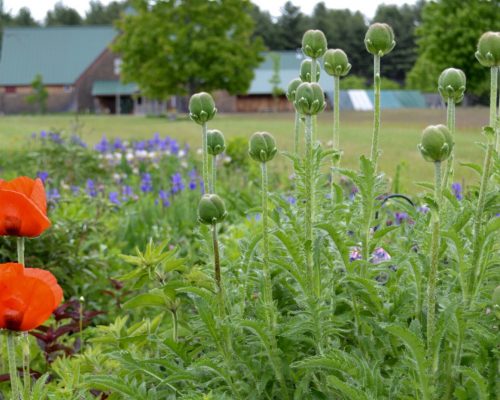
Energy Efficiency – Since we arrived in Unity in 1998, MOFGA has taken a conservation approach to building, and we have installed small-scale, innovative energy-generating facilities to reduce our dependence on fossil fuels.
We exhibit the possibilities for visitors, especially at our Common Ground Country Fair each September. A key part of this programming are MOFGA’s 24 air source heat pumps and 102-kilowatt solar array, implemented in partnership with ReVisoin Energy in 2016.
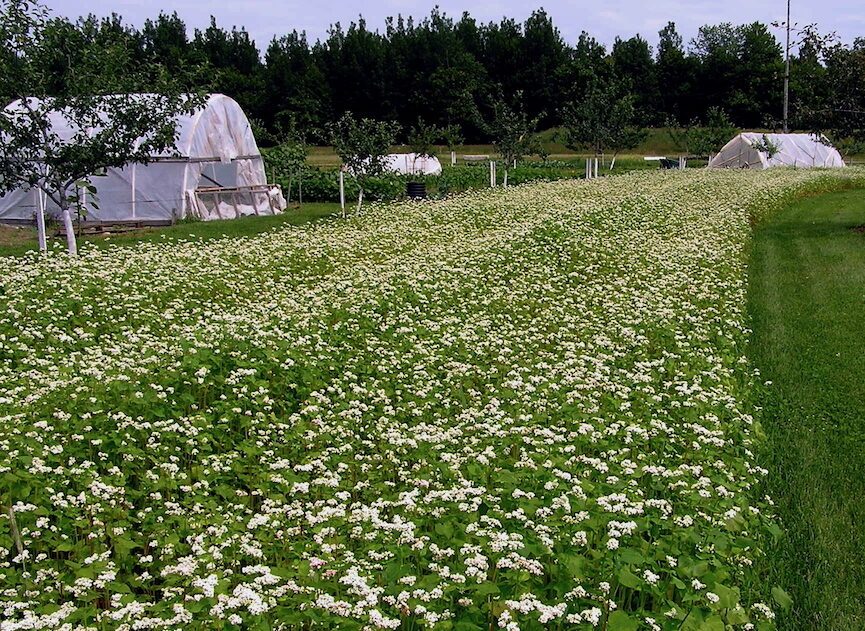
Fields, Gardens, Shade Trees and High Tunnels – MOFGA’s numerous volunteers and staff have planted hundreds of shade and fruit trees, established perennial and annual gardens, and helped create an educational landscape that highlights sustainable agricultural practices for our region. The gardens are home to an array of fruits, vegetables, and herbs which shift with the seasons. Favorites include a dye garden, cover crop and green manure demonstrations, and the bulb display surrounding our stone sundial. Several small hooped structures, an array of homemade and purchased hand tools and a few irrigation systems can be also found throughout the gardens. Signage is generally available, to convey what crops are being grown, how, and for what purposes.
Orchards – MOFGA’s orchards celebrate and preserve our heritage of tree fruit diversity, demonstrate innovative polycultural orcharding, and regenerate soil vitality. The Maine Heritage Orchard is a ten-acre educational preservation orchard with more than 300 varieties of apples and pears traditionally grown in Maine. We are adding more varieties each year. The collection includes varieties from all 16 counties in Maine dating back as far as 1630. Until recently, many of them had been on the verge of extinction. This undertaking is all the more inspiring for the amazing transformation of its setting — a reclaimed gravel pit.
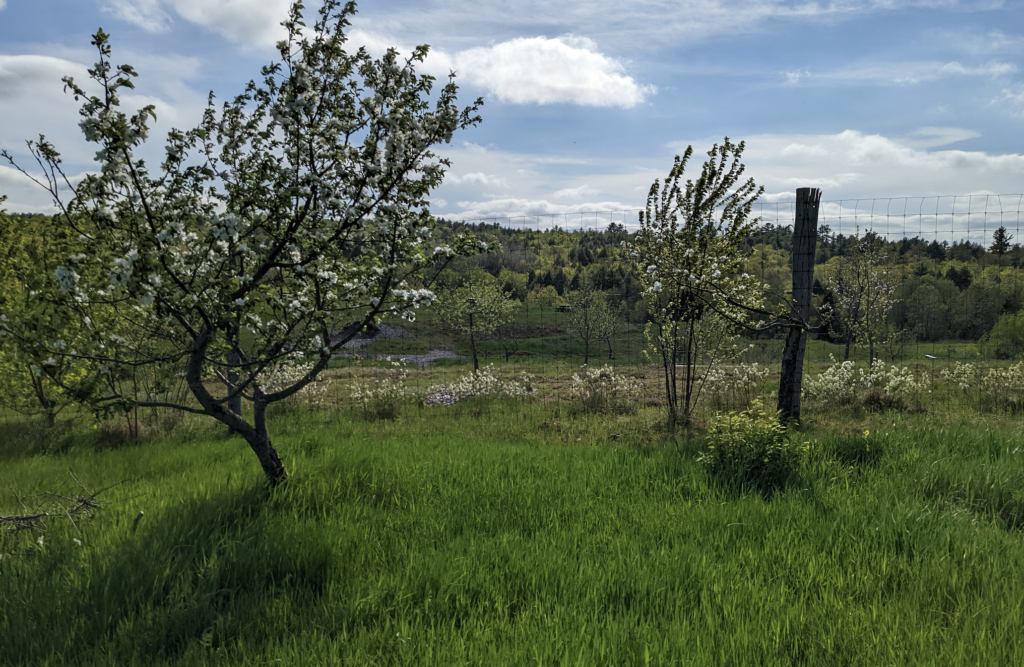
MOFGA also manages two orchards on the main campus of the Common Ground Education Center, which visitors approach almost immediately upon arrival through either the Rose (north) or Pine (south) entrances. The North Orchard showcases apple varieties with Maine origins. The South Orchard contains a mixture of tree species — apples, plums, pears, cherries and peaches — and is typical of a small farm or home orchard. The North and South orchards serve as demonstration sites, and have garden beds running between the rows of trees. The orchards are an important part of our educational programming and are used for teaching pruning, grafting and organic orchard care.
Woodlot – MOFGA has a forest management plan for its 150 acres of woods. Like many big projects at MOFGA, the woods are managed by staff and volunteers on our Low Impact Forestry Committee, with guidance from our consulting forester. The woodlands are primarily managed for timber and educational opportunities — ranging from low impact logging and chainsaw safety to wildlife management and tree identification. Some of the woods have regrown from pastureland. White pines, once densely packed together, can be seen overhead with a lush midstory below, generated by the work and dedication of our community since 1997. Wood is harvested to improve the health and diversity of our forest, and it has been used in building projects across campus.
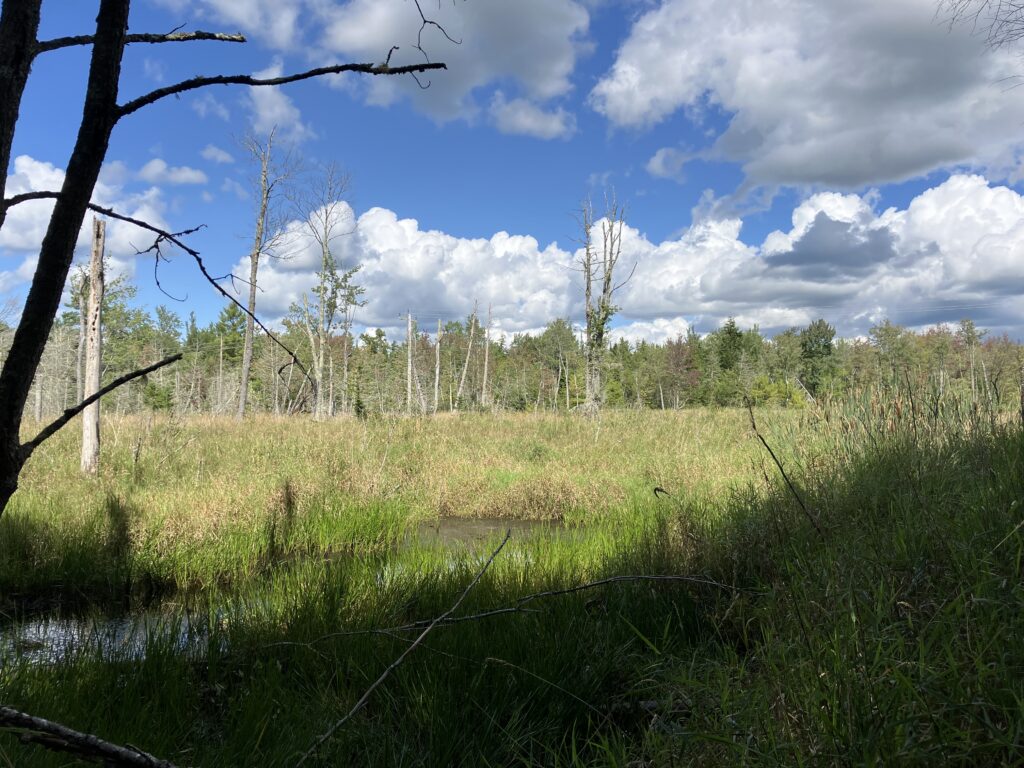
Deeper within the woods, visitors will come across vernal pools and, further along, wetlands. On the south side of campus, our sugarbush is actively tapped each spring with the flow of sap. To the north near the Maine Heritage Orchard, the Hills to Sea Trail can be found crossing Sandy Stream. This area is a great place to find spring wildflowers, but mind the poison ivy. Just off Crosby Brook Road where the woods begin from the south, we planted more southerly tree species in the forest as part of an assisted migration demonstration aimed at climate adaptation. From the assisted migration demonstration, the Woods Road will take a visitor through the woods to the South Orchard, passing the primary location for MOFGA’s Low Impact Forestry programs during the Common Ground Country Fair along the way.
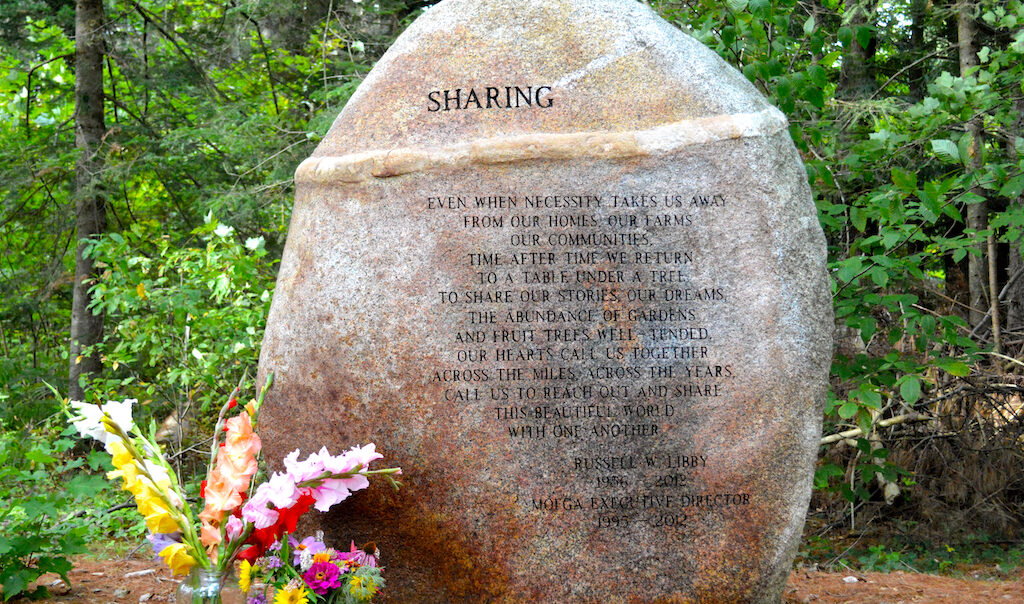
Russell’s Poetry Grove – In memory of MOFGA’s long-time beloved executive director Russell Libby, MOFGA created a poetry grove in the woods near the railroad stop. Russell loved to write and share poetry with friends, family and colleagues. The setting invites visitors to rest a while on beautiful stone benches, soak in the grandeur of the towering pines, share poetry and conversation with one another, and celebrate the vision that Russell had for MOFGA.
Hills to Sea Trail – MOFGA is part of the Waldo County Trails Coalition (WCTC), a collaborative project of nine Waldo County organizations working to create a year-round recreational footpath stretching from Unity to Belfast. The Coalition envisions the trail as a way to raise environmental awareness, support our working landscape, and connect and strengthen communities. This 60 mile link of trails crosses MOFGA’s Common Ground Education Center. If you would like to be involved with this exciting project or contribute financial support for the long-term stewardship of the trail, please send an email to [email protected].
Working Space
Offices – MOFGA staff members have offices in the main building, in the Annex building on Route 220 in Thorndike, and across town in a space rented from Maine Farmland Trust. Several staff members work in remote locations around the state as well. As MOFGA’s programs grow, so does the staff and the corresponding need for workspace. Plans are ever evolving but we are all grateful for the beautiful venue that we call home.
MOFGA also has office space available for rent. Some of this office space is currently in use by other nonprofit organizations local to the area. Community partners interested in renting office space can email [email protected].
Learning Space
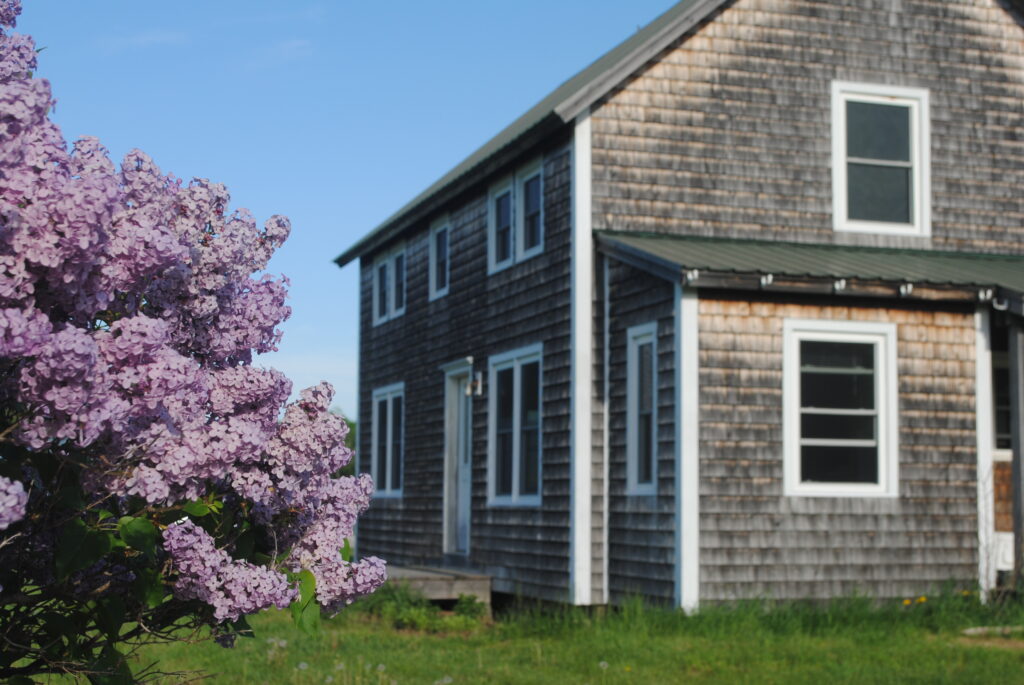
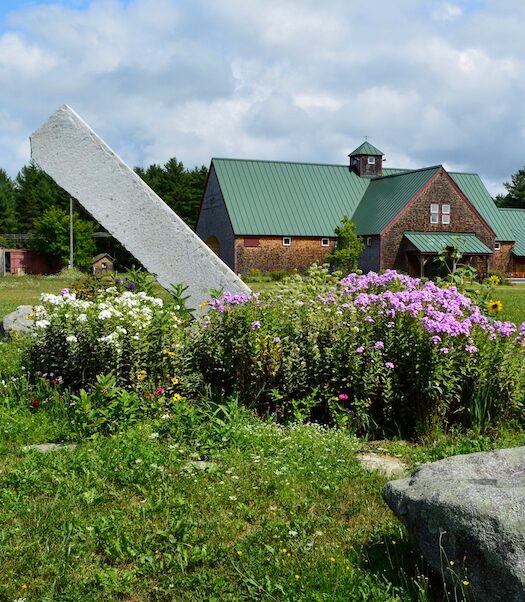
Library – MOFGA’s library is the most frequently used facility at the Common Ground Education Center. In addition to being an educational resource for the public, MOFGA staff and volunteers use the office regularly for meetings and educational programs. We are especially grateful to the Stephen and Tabitha King Foundation for the generous financial support that allowed us to install library shelving, computers, and locally crafted furniture. Their support has also allowed us to catalog our collection, making it searchable online. The library houses close to 2,000 volumes of sustainable agriculture books and dozens of periodicals and newsletters. In addition to hundreds of popular and academic books covering organic sustainable farming and gardening, the library includes dozens of old and out-of-print volumes. Essentially everything that has been written about sustainable agriculture in Maine, and some material from beyond, is represented and available to visitors for use in the library. Many of the books in this rich collection were donated by members and friends of MOFGA over the organization’s history.
Unity Hall – MOFGA’s Unity Hall is a 4,000 square foot room used for workshops, conferences, meetings, feasts, social gatherings, and, of course, the Exhibition Hall of the Common Ground Country Fair. In 1998, the post and beam construction was built by four different timber framers including: Connolly & Company of Edgecomb; Timber Frames by R.A. Krouse of Arundel; Mike Smiley Timber Frames of New Sharon; and Fairbanks Timber Frames of Winthrop. The framers cut sections of the Hall and joined them together at the raising. Unity Hall was made possible by the generosity of Bert and Coral Clifford of Unity.
Common Kitchen – MOFGA’s Common Kitchen is commercially licensed and fully equipped with appliances and cooking gear. Staff and volunteers use the kitchen year-round to prepare food for MOFGA events. The busiest time of year in the kitchen is, of course, late September, when volunteers are preparing thousands of delicious meals for hungry Common Ground Country Fair volunteers. The Common Kitchen serves as a great venue for cooking classes and kitchen safety workshops as well. It is available to rent by community partners, growers, and for events.
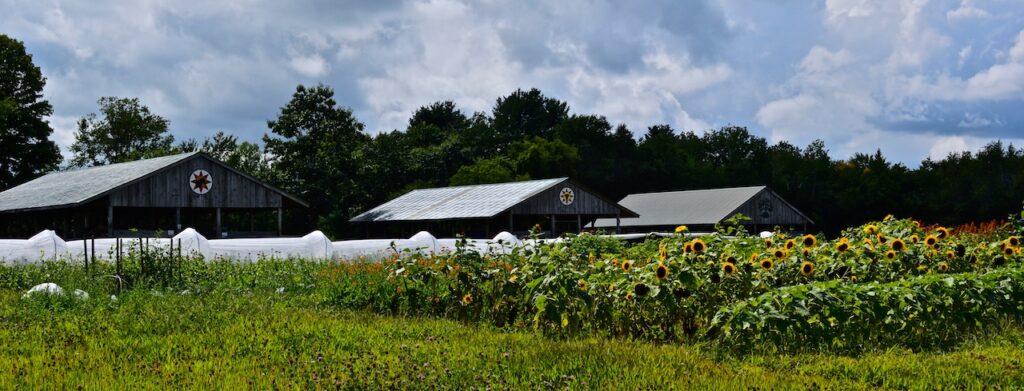
Explore the Grounds
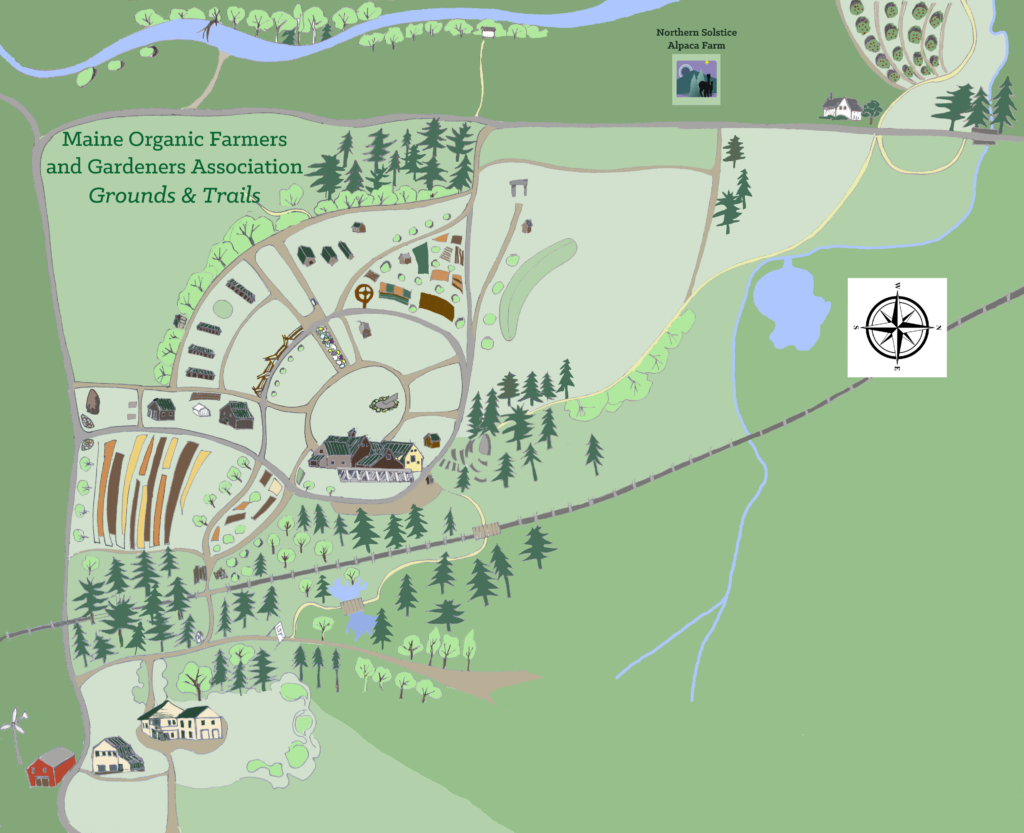
Book the Common Ground Education Center for your next event! Common Ground Education Center is an event venue for all occasions including educational events, weddings, life celebrations, concerts, festivals, and retreats. Read more about our offerings.
